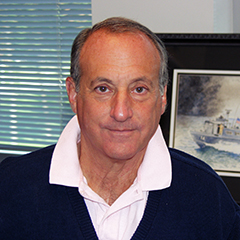Is Ukraine Vladimir Putin’s Vietnam? Will Putin’s Special Military Operation become a quagmire that eviscerates Russia’s army and ultimately leads to its defeat? Or will Putin continue that war no matter the cost expecting that Russia’s advantages in size and mass will overcome Ukraine’s heroic resistance?
Many Americans may be uncomfortable with comparing Putin with any US president perhaps other than Donald Trump. However, many of the errors Lyndon Johnson and his administration committed in Vietnam have been repeated by Putin and Russia in Ukraine. Consider some of the similarities.
South Vietnam came into existence along with the Democratic Republic of Vietnam following the Geneva Conference in 1954 and France’s military defeat and subsequent withdrawal from Indo-China. The North still harboured designs on the South it would pursue for two decades.
In 1991 after the Soviet Union imploded, along with other former Soviet Republics, Ukraine became independent and the Russian Federation replaced the former USSR. Putin believed that this dissolution was the greatest geostrategic disaster of the last century. And Putin began weaning Ukraine back into Moscow’s sphere.
The well-known 1968 North Vietnamese Tet Offensive was a military failure and public relations success for Hanoi.
The Vietnam War was regarded by the Kennedy-Johnson administration as a vital national interest to prevent what was popularly viewed in America as the Sino-Soviet, the godless monolithic threat of global communism that had to be stopped. South Vietnam became the battleground for nearly a decade and a half to halt that advance. 58,000 Americans and many more times that number of Vietnamese on both sides would die.
Putin aimed to stop the expansion and influence of NATO east and prevent Ukraine from joining that alliance. Those were vital Russian interests that Putin concluded could only be achieved by using force. And while the Russian military was all-volunteer, Putin would be forced to mobilize, i.e. draft, some 300,000 Russian recruits, much as the bulk of US soldiers sent to fight in Vietnam were draftees.
The US expected that both the Viet Cong and North Vietnamese would be quickly overwhelmed by America’s vastly superior military forces. As that war bogged down, even though the US won virtually every battle it fought with huge “body counts” of enemy dead, Hanoi would not quit. To force the North to the conference table, the US began a massive bombing campaign against North Vietnam called “Rolling Thunder.”
Putin likewise believed that his forces would quickly rout Ukraine’s army and march into Kyiv capturing it and thus guaranteeing the surrender of the Zelensky government. There was every reason for Putin to believe that outcome was inevitable. The Russian army had modernized into Battalion Battle Groups (BTG’s) equipped with war-tested weapons proven in Syria where some 5000 Russian troops and Kalibr cruise missiles kept President Bashar al Assad in power.
Putin’s military, however, has been badly bloodied and mauled. The body count has favoured Ukraine by a large amount as Russian casualties are 100,000 or more killed or wounded; thousands of its tanks, artillery pieces and armoured vehicles destroyed or captured; and much of its ammunition, missiles and drone stocks depleted in the fighting. Facing defeat on the ground, Putin turned to missile strikes against Ukrainian power, water and food infrastructure to coerce Kyiv to negotiate or capitulate.
The well-known 1968 North Vietnamese Tet Offensive was a military failure and public relations success for Hanoi as many Americans became convinced the war was unwinnable. Rolling Thunder did not bring North Vietnam to its knees. However, the Christmas 1972 bombing did bring North Vietnam back to the negotiating table.
By 1973, the US had withdrawn virtually all its forces from Vietnam. And two years later, the North’s tanks rolled into Saigon finally unifying Vietnam. It is unlikely that Russian tanks will roll into Kyiv. But whether Ukraine will in essence become North Vietnam and expel all aggressors is also very unlikely.
While the battle in Ukraine may be headed towards deadlock, one aspect of the Vietnam War could prove determinant. Vietnam was largely lost in American living rooms as the war dragged on and more Americans were killed. The US was not accustomed to fighting long wars.
The US declared war in April 1917 against the Central Powers, which ended in November 1918. World War II lasted from December 1941 until September 1945. And the Korean War was fought from June 1950-1953.
Will Ukraine be decided in Russian living rooms? That may be the most important comparison with Vietnam. The answer is most likely no. However, suppose the Russian public turns against the war. Putin would be ill-advised to ignore that prospect.
The writer is a senior advisor at Washington, DC’s Atlantic Council and a published author.
